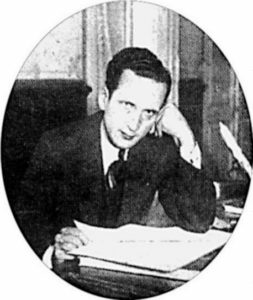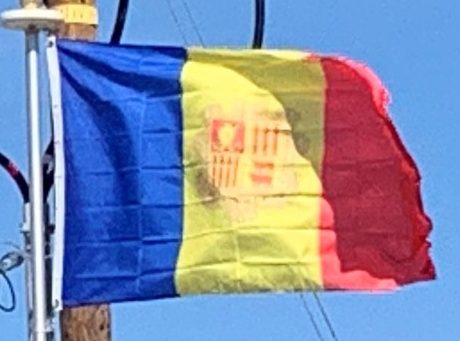On 6 July 1934, adventurer and nobleman Boris Skossyreff, with his promise of freedoms and modernization of the country and wealth through the establishment of a tax haven and foreign investments, received the support of the members of the General Council to proclaim himself the sovereign of Andorra. On 8 July 1934 Boris issued a proclamation in Urgell, declaring himself Boris I, King of Andorra, simultaneously declaring war on the Bishop of Urgell and approving the King’s constitution on 10 July. He was arrested by the Co-Prince and Bishop Justí Guitart i Vilardebó and their authorities on 20 July and ultimately expelled from Spain. From 1936 until 1940, a French military detachment of Garde Mobile led by well-known Colonel René-Jules Baulard was garrisoned in Andorra to secure the principality against disruption from the Spanish Civil War and Francoist Spain and also face the rise of Republicanism in the aftermath of the 1933 Revolution. During the Spanish Civil War the inhabitants of Andorra welcomed refugees from both sides and many of them settled permanently in the country thus contributing to the subsequent economic boom and the entry into the capitalist era of Andorra. Francoist troops reached the Andorran border in the later stages of the war.

During World War II, Andorra remained neutral and was an important smuggling route between Vichy France and Francoist Spain. At the course of the war, the population, which lived between two states that had declared to be openly fascist, criticized the passivity of the General Council to the impediment of entry and expulsion of foreigners or refugees, the crimes for economic interests, the reduction of rights of citizens and be too close or sympathetic to Francoism. The General Council itself justified its political and diplomatic actions under the survival and protection of Andorra’s sovereignty, which finally emerged from the two conflicts unscathed. Thus, certain groups organized themselves to help the victims of Nazi oppression coming from Europe, while participating in smuggling to help the country survive. Among the groups that were most prominent there was the Hostal Palanques Evasion Network Command, in contact with the British Mi6, which helped almost 400 fugitives, among whom were also Allied military personnel. They remained active between 1941 and 1944, with certain struggles with pro-Axis informers and Gestapo agents within the country.
In the capital city there was a smuggling black market network of propaganda, culture and cinematic art not prone to totalitarian regimes, promulgated in some places as the Hotel Mirador or the Casino Hotel, as a meeting place for people of ideologies close to Andorran and Spanish Republicanism, and Free France. The network was maintained after the war, when the film societies were formed, where movies, music and books censored in Franco’s Spain were imported, thus becoming an anti-censorship attraction for the Catalan or foreign public even within Andorra. Andorran Group (Agrupament Andorrà), an anti-fascist organization linked to the Occitanie’s French Resistance, accused the French representative (veguer) of collaboration with Nazism.
